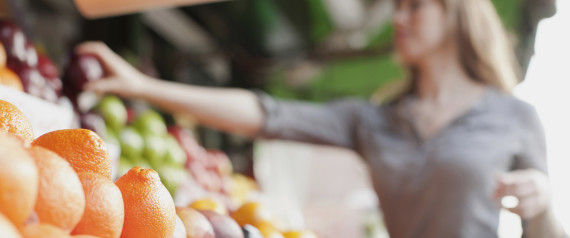 |
| Image source: huffingtonpost.com |
My mom, Suzanne, is a health coach and my go-to resource for help getting my very picky 4-year-old to eat! Recently, I was lamenting the fact that he has now decided to cut out even broccoli, which historically has been a favorite green. My mom reminded me not to forget the importance of fruit, which most kids already eat, and which also packs a great nutritional punch.
Fruits are packed with vitamins, minerals, antioxidants, enzymes and phytochemicals, all essential for optimal health. Fruit also contains water-soluble fiber, especially the inulins and saccharides, which are prebiotics (which serve as food for probiotics, the good bacteria that live in the digestive system). Johns Hopkins researcher Dr. Christiane Northrup says "Your gut is a very delicate ecosystem, with more flora (healthy bacteria) in it than all the other cells in the body put together. [The digestive tract] is your first line of defense against bugs and other organisms that can make you ill."
But What About All the Sugar in Fruit?
Many of my mom's clients worry about all the sugar in fruit. She had this take on it, which made a lot of sense to me:
The sugar from raw fruit is fuel for activity. How much fruit sugar one eats should be directly related to how active one is. Children are often very active, so it makes sense that they would be attracted to fruit. Bananas and dates have the most sugar and berries the least, so also keep that in mind when eating fruit.
Also good to remember: "The sugar in fruit has companion nutrients so a healthy person has no need to avoid sugar from raw fruit. Fruit juice, on the other hand, should be used sparingly, as it is the concentrated sugars without the fiber and other beneficial properties that slow sugar's absorption."
From now on, when Felix turns up his nose at broccoli, brussel sprouts, kale, lettuce, green beans and squash, I will hand him an apple, and feel good about all the nutrients he's getting from that.
Robert Pastore is a scientist who focuses on nutrition and biochemistry, For more on him and his work, visit this website.